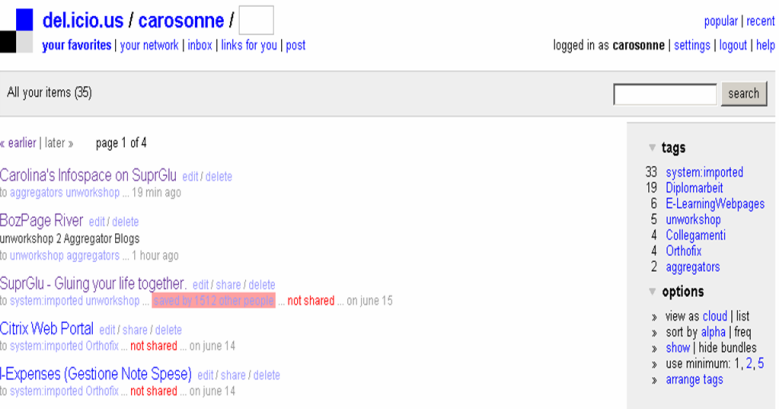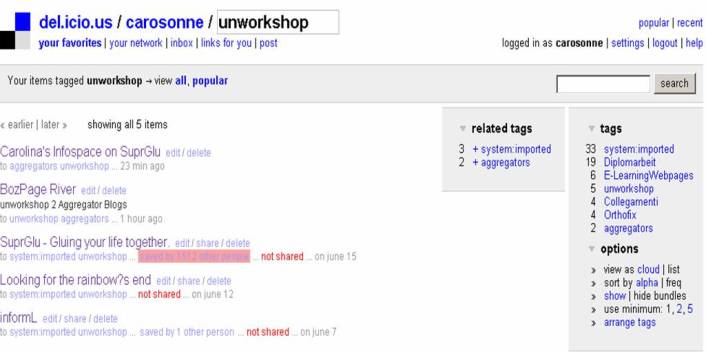The unworkshop is – unfortunately – almost over, tonight is our last session and Monday we will have our “graduation ceremony”. Time for a Review about my experiences, good and bad things and what I learned.
My experiences!? Well when I first entered into the Skype Conference Call I was a little overstrained – I was hearing the voices of at least 8-10 different people that I wasn’t able to allocate names although I saw their names in the chat…. Very confusing but in a certain way very interesting and funny experience. During time I got to know some voices so that I’m not as confused as before. I think this is also because of Harold’s great performance in managing the whole vocal part. Thanks for that!
What was difficult for me was to get in touch with my “classmates” via Skype. This is first of all because I’m not very flexible in online hours and second, and probably more important, because it was difficult for me to just call people without having a reason. I think it would have been much easier if the Assignments would have been more like the first one: We were assigned to a group of 3 people (very good number, easy to manage) and asked to elaborate a certain question during a skype call. I think it would have been easier if for the first 3 or 4 times, it would have been the same just allocating people to oter groups. So after 3 assignments I would have been talking to at least 6 other people. This would have strengthened the community a lot and people, like me, that doesn’t walk through these things easily would have had an aid to get into touch with others…..
My Blog – another interesting experience. I realized that writing on my Blog helped me rethinking and reviewing things that I have learned as I needed to bring them “to paper”. This often gave me a deeper understanding of what we did in the unworkshop. Even if sometimes it is difficult to find time to write it was a really good experience and I think I will go on Blogging!
What did I learn? A lot I have to admid! I thought I knew already quite a lot of things about wikis and blogs but actually it was just the basic knowledge. I realized how much possibilities for learning and (personal) knowledge management they imlply. But actually I have to admit that I prefer the blog – I’m kind of missing the structured communication, development in Wikies. It is much easier to stay up to date with a blog than with a Wiki. A Blog always shows you the newest things on top, on a Wiki they can be hidden somewhere within. I also prefer editing my own page rather than writing something on a public place.
RSS and Aggregators: I really use them now! I think they are very useful to remain updated. But I realised that it is helpful to have different aggregators for different areas of interest. If not it just becomes another page full of unstructured information.
Del.icio.us – delicious! Really one of the most useful things I learned in the unworkshop. Being able to organise pages of interest under different tags, not just one single bookmark, helps to find exactly the information required in a certain moment. And being able to use my bookmarks from every computer with a internet connection is even better! Also a tool that I started to use regularly!
Conclusion: I learned a lot about personal knowledge management, how to organise my computer, “my internet” to go on learning. I was missing some examples of implication of all these tools within corporate learning.
But maybe that’s not the point – it’s informal learning, it’s personal. People have to do it on their own without being formally introduced on what to do….. With offering certain methods that we learned to our employees and maybe offering a corporate Wiki or Blog people would be able to organize themselves – informally… Mabe that’s the point!? And maybe there’s the implication!?



 Posted by carosonne
Posted by carosonne 
